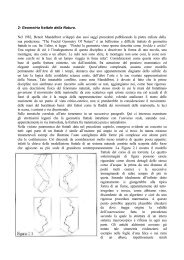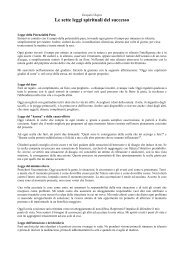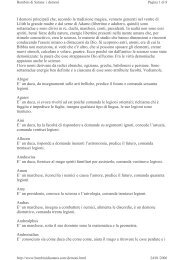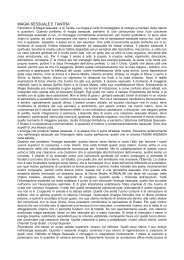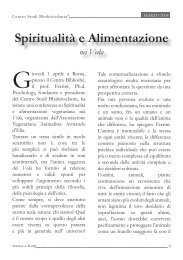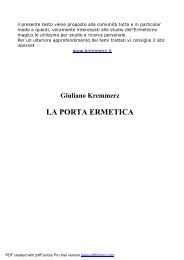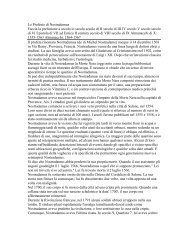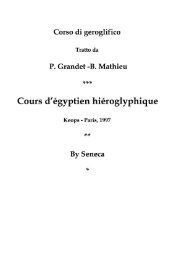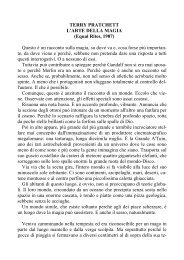136 TALIBANwas to plunge Algeria into a bloodbath, destabilize North Africa and leadto the growth of Islamic extremism in France. Algeria was only a foretasteof what was to come later. Bombings carried out in Egypt by Islamicgroups were also traced back to Egyptian veterans trained in Afghanistan.Bin Laden knew many of the perpetrators of these violent acts acrossthe Muslim world, because they had lived and fought together inAfghanistan. His organization, focused around supporting veterans of theAfghan war and their families, maintained contacts with them. He maywell have funded some of their operations, but he was unlikely to knowwhat they were all up to or what their domestic agendas were. Bin Ladenhas always been insecure within the architecture of Islam. He is neitheran Islamic scholar nor a teacher and thus cannot legally issue fatwas -although he does so. In the West his 'Death to America' appeals havebeen read as fatwas, even though they do not carry moral weight in theMuslim world.Arab-Afghans who knew him during the jihad say he was neither intellectualnor articulate about what needed to be done in the Muslim world.In that sense he was neither the Lenin of the Islamic revolution, nor washe the internationalist ideologue of the Islamic revolution such as CheGuevera was to revolution in the third world.Bin Laden's former associates describe him as deeply impressionable,always in the need for mentors - men who knew more about both Islamand the modern world than he did. To the long list of mentors during hisyouth were later added Dr Aiman al-Zawahiri, the head of the bannedIslamic Jihad in Egypt and the two sons of Shaikh Omar Abdel Rehman,the blind Egyptian preacher now in a US jail for the World Trade Centrebombing and who had led the banned El Gamaa Islamiyya in Egypt.Through the Afghan jihad, he also knew senior figures in the NationalIslamic Front in the Sudan, Hezbollah in Lebanon and Hamas, the radicalIslamic Palestinian movement in Gaza and the West Bank. In Kandaharhe had Chechens, Bangladeshis, Filipinos, Algerians, Kenyans, Pakistanisand African-American Muslims with him — many of whom were widelyread and better informed than Bin Laden, but could not travel outsideAfghanistan because they were on US wanted lists. What they neededwas financial support and a sanctuary which Bin Laden gave them.After the Africa bombings the US launched a truely global operation.More than 80 Islamic militants were arrested in a dozen different countries.Militants were picked up in a crescent running from Tanzania,Kenya, Sudan, Yemen, to Pakistan, Bangladesh, Malaysia and the Phillipines.15 In December 1998, Indian authorities detained Bangladeshi militantsfor plotting to bomb the US Consulate in Calcutta. Seven Afghannationals using false Italian passports were arrested in Malaysia andaccused of trying to start a bombing campaign. 16 According to the FBI,GLOBAL JIHAD: THE ARAB-AFGHANS AND OSAMA BIN LADEN ~ 137militants in Yemen who kidnapped 16 Western tourists in December 1998were funded by Bin Laden. 17 In February 1999, Bangladeshi authoritiessaid Bin Laden had sent US$1 million to the Harkat-ul-Jihad (HJ) inDhaka, some of whose members had trained and fought in Afghanistan.HJ leaders said they wanted to turn Bangladesh into a Taliban-styleIslamic state. 18Thousands of miles away in Nouakchott, the capital of Mauritania inWest Africa, several militants were arrested who had also trained underBin Laden in Afghanistan and were suspected of plotting bomb explosions.19 Meanwhile during the trial of 107 Al-Jihad members at a militarycourt in Cairo, Egyptian intelligence officers testified that Bin Laden hadbankrolled Al-Jihad. 20 In February 1999 the CIA claimed that throughmonitoring Bin Laden's communication network by satellite, they hadprevented his supporters from carrying out seven bomb attacks againstUS overseas facilities in Saudi Arabia, Albania, Azerbaijan, Tajikistan,Uganda, Uruguay and the Ivory Coast - emphasizing the reach of theAfghan veterans. The Clinton administration sanctioned US$6.7 billionto fight terrorism in 1999, while the FBI's counter-terrorism budget grewfrom US$118 million to US$286 million and the agency allocated 2,650agents to the task, twice the number in 1998.But it was Pakistan and Saudi Arabia, the original sponsors of the Arab-Afghans, who suffered the most as their activities rebounded. In March1997, three Arab and two Tajik militants were shot dead after a 36-hourgun battle between them and the police in an Afghan refugee camp nearPeshawar. Belonging to the Wahabbi radical Tafkir group, they were planningto bomb an Islamic heads of state meeting in Islamabad.With the encouragement of Pakistan, the Taliban and Bin Laden,Arab-Afghans had enlisted in the Pakistani party Harkat-ul-Ansar to fightin Kashmir against Indian troops. By inducting Arabs who introducedWahabbi-style rules in the Kashmir valley, genuine Kashmiri militantsfelt insulted. The US government had declared Ansar a terrorist organizationin 1996 and it had subsequently changed its name to Harkat-ul-Mujaheddin. All the Pakistani victims of the US missile strikes on Khostbelonged to Ansar. In 1999, Ansar said it would impose a strict Wahabbistyledress code in the Kashmir valley and banned jeans and jackets. On15 February 1999, they shot and wounded three Kashmiri cable televisionoperators for relaying Western satellite broadcasts. Ansar had previouslyrespected the liberal traditions of Kashmiri Muslims but the activites ofthe Arab-Afghans hurt the legitimacy of the Kashmiri movement andgave India a propaganda coup. 21Pakistan faced a problem when Washington urged Prime MinisterNawaz Sharif to help arrest Bin Laden. The ISI's close contacts with BinLaden and the fact that he was helping fund and train Kashmiri militants
138 ~ TALIBANwho were using the Khost camps, created a dilemma for Sharif when hevisited Washington in December 1998. Sharif side-stepped the issue butother Pakistani officials were more brazen, reminding their Americancounterparts how they had both helped midwife Bin Laden in the 1980sand the Taliban in the 1990s. Bin Laden himself pointed to continuedsupport from some elements in the Pakistani intelligence services in aninterview. 'As for Pakistan there are some governmental departments,which, by the Grace of God, respond to the Islamic sentiments of themasses in Pakistan. This is reflected in sympathy and co-operation. However,some other governmental departments fell into the trap of the infidels.We pray to God to return them to the right path,' said Bin Laden. 22Support for Bin Laden by elements within the Pakistani establishmentwas another contradiction in Pakistan's Afghan policy, explored fully inChapter 14- The US was Pakistan's closest ally with deep links to themilitary and the ISI. But both the Taliban and Bin Laden provided sanctuaryand training facilities for Kashmiri militants who were backed byPakistan, and Islamabad had little interest in drying up that support. Eventhough the Americans repeatedly tried to persuade the ISI to co-operatein delivering Bin Laden, the ISI declined, although it did help the USarrest several of Bin Laden's supporters. Without Pakistan's support theUSA could not hope to launch a snatch by US commandos or moreaccurate bombing strikes because it needed Pakistani territory to launchsuch raids. At the same time the USA dared not expose Pakistan's supportfor the Taliban, because it still hoped for ISI co-operation in catchingBin Laden.The Saudi conundrum was even worse. In July 1998 Prince Turki hadvisited Kandahar and a few weeks later 400 new pick-up trucks arrived inKandahar for the Taliban, still bearing their Dubai license plates. TheSaudis also gave cash for the Taliban's cheque book conquest of the northin the autumn. Until the Africa bombings and despite US pressure to endtheir support for the Taliban, the Saudis continued funding the Talibanand were silent on the need to extradite Bin Laden. 23 The truth aboutthe Saudi silence was even more complicated. The Saudis preferred toleave Bin Laden alone in Afghanistan because his arrest and trial by theAmericans could expose the deep relationship that Bin Laden continuedto have with sympathetic members of the Royal Family and elementswithin Saudi intelligence, which could prove deeply embarrassing. TheSaudis wanted Bin Laden either dead or a captive of the Taliban - theydid not want him captured by the Americans.After the August 1998 Africa bombings, US pressure on the Saudisincreased. Prince Turki visited Kandahar again, this time to persuade theTaliban to hand over Bin Laden. In their meeting, Mullah Omar refusedto do so and then insulted Prince Turki by abusing the Saudi RoyalGLOBAL JIHAD: THE ARAB-AFGHANS AND OSAMA BIN LADEN ~ 139Family. Bin Laden himself described what took place. 'He [Prince Turki]asked Mullah Omar to surrender us home or to expel us from Afghanistan.It is none of the business of the Saudi regime to come and ask for thehanding over of Osama Bin Laden. It was as if Turki came as an envoyof the American government.' 24 Furious about the Taliban insults, theSaudis suspended diplomatic relations with the Taliban and ostensiblyceased all aid to them, although they did not withdraw recognition of theTaliban government.By now Bin Laden had developed considerable influence with the Taliban,but that had not always been the case. The Taliban's contact withthe Arab-Afghans and their Pan-Islamic ideology was non-existent untilthe Taliban captured Kabul in 1996. Pakistan was closely involved inintroducing Bin Laden to the Taliban leaders in Kandahar, because itwanted to retain the Khost training camps for Kashmiri militants, whichwere now in Taliban hands. Persuasion by Pakistan, the Taliban's bettereducatedcadres, who also had Pan-Islamic ideas, and the lure of financialbenefits from Bin Laden, encouraged the Taliban leaders to meet withBin Laden and hand him back the Khost camps.Partly for his own safety and partly to keep control over him, the Talibanshifted Bin Laden to Kandahar in 1997. At first he lived as a payingguest. He built a house for Mullah Omar's family and provided funds toother Taliban leaders. He promised to pave the road from Kandahar airportto the city and build mosques, schools and dams but his civic worksnever got started as his funds were frozen. While Bin Laden lived inenormous style in a huge mansion in Kandahar with his family, servantsand fellow militants, the arrogant behaviour of the Arab-Afghans whoarrived with him and their failure to fulfil any of their civic projects,antagonized the local population. The Kandaharis saw the Taliban leadersas beneficiaries of Arab largesse rather than the people.Bin Laden endeared himself further to the leadership by sending severalhundred Arab-Afghans to participate in the 1997 and 1998 Talibanoffensives in the north. These Wahabbi fighters helped the Taliban carryout the massacres of the Shia Hazaras in the north. Several hundred Arab-Afghans, based in the Rishkor army garrison outside Kabul, fought on theKabul front against Masud. Increasingly, Bin Laden's world view appearedto dominate the thinking of senior Taliban leaders. All-night conversationsbetween Bin Laden and the Taliban leaders paid off. Until hisarrival the Taliban leadership had not been particularly antagonistic tothe USA or the West but demanded recognition for their government.However, after the Africa bombings the Taliban became increasinglyvociferous against the Americans, the UN, the Saudis and Muslimregimes around the world. Their statements increasingly reflected the languageof defiance Bin Laden had adopted and which was not an original
- Page 1 and 2:
YALE NOTA BENE"The broader storyher
- Page 3 and 4:
TalibanMilitant Islam,Oil and Funda
- Page 5 and 6:
Vi ~ CONTENTSChapter 8A Vanished Ge
- Page 7 and 8:
AFGHANISTAN•^ UZBEKISTAN J TAJIKI
- Page 9 and 10:
2 ~ TALIBANaccounts for some 40 per
- Page 11 and 12:
"6 ~ TALIBANgas riches of landlocke
- Page 13 and 14:
10 ~ TALIBANgious mix that was to m
- Page 15 and 16:
Part 1History of theTaliban Movemen
- Page 17 and 18:
18 ~ ISLAM OIL AND THE NEW GREAT GA
- Page 19 and 20:
22 ~ ISLAM OIL AND THE NEW GREAT GA
- Page 21 and 22:
26 ~ ISLAM OIL AND THE NEW GREAT GA
- Page 23 and 24:
30 ~ ISLAM OIL AND THE NEW GREAT GA
- Page 25 and 26: 34 TALIBANKabul- Hikmetyar had alli
- Page 27 and 28: 38 ~ TALIBANrHERAT 1995: GOD'S INVI
- Page 29 and 30: 42 ~ TALIBANdo manage to take Kabul
- Page 31 and 32: J46 ~ TALIBANgreater weight to UN e
- Page 33 and 34: 50 ~ TALIBANas they hung from steel
- Page 35 and 36: 54 ~ TALIBANthey would help rearm t
- Page 37 and 38: 58 TALIBANGul Mohammed Pahlawan, Gh
- Page 39 and 40: 62 TALIBAN2,500 Taliban, who had re
- Page 41 and 42: 66 TALIBANshould throw all aid agen
- Page 43 and 44: 70 ~ TALIBANyears of battle and hel
- Page 45 and 46: 74 ~ TALIBANThousands of Hazaras we
- Page 47 and 48: 78 TALIBANhas become a plague,' sai
- Page 49 and 50: NEW STYLE FUNDAMENTALISM OF THE TAL
- Page 51 and 52: 86 TALIBANsity students - Hikmetyar
- Page 53 and 54: 90 TALIBANSharia was heavily influe
- Page 55 and 56: 94 TALIBANinflamed the debate in th
- Page 57 and 58: 98 TALIBANizing factor of Islam, it
- Page 59 and 60: 102 TALIBANadministrations made the
- Page 61 and 62: 106 ~ TAUBANfrom working, but it no
- Page 63 and 64: TALIBANUniversity, she held down a
- Page 65 and 66: 114 TALIBAN A VANISHED GENDER 115Ta
- Page 67 and 68: 118 TALIBANUS$1,300 - a small fortu
- Page 69 and 70: 122 TALIBANper cent of the total Pa
- Page 71 and 72: 126 TALIBANequipment, no electricit
- Page 73 and 74: 130 ~ TALIBANfight with the Mujahed
- Page 75: 134TALIBANAugust 1996 noted that Bi
- Page 79 and 80: 11DICTATORS AND OILBARONS: THE TALI
- Page 81 and 82: 146 TALIBAN DICTATORS AND OIL BARON
- Page 83 and 84: 150 — TALIBANgrowth of beards and
- Page 85 and 86: 154TALIBAN1998 when international o
- Page 87 and 88: 158 ~ TALIBANaround Afghanistan? Af
- Page 89 and 90: 162 TALIBAN ROMANCING THE TALIBAN 1
- Page 91 and 92: 166 TALIBAN ROMANCING THE TALIBAN 1
- Page 93 and 94: ROMANCING THE TALIBAN 2: 1997-99 17
- Page 95 and 96: 174 — TALIBANnon-Russian pipeline
- Page 97 and 98: 178 — TALIBANROMANCING THE TALIBA
- Page 99 and 100: 182 ~ TALIBANApril 1999. 'The US ha
- Page 101 and 102: 186 ~ TALIBANters or the transport
- Page 103 and 104: 190 ~ TALIBANThis Wild West of free
- Page 105 and 106: 194 ~ TALIBANgovernance. Pakistani
- Page 107 and 108: 198 TALIBAN SHIA VERSUS SUNNI: IRAN
- Page 109 and 110: 202 TALIBAN SHIA VERSUS SUNNI: IRAN
- Page 111 and 112: 206 — TALIBANin Afghanistan - to
- Page 113 and 114: 210 — TALIBANand antagonism. The
- Page 115 and 116: 214 ~ TALIBANdrawn since 1996 - a P
- Page 117 and 118: 218 ~ TALIBANated and severely puni
- Page 119 and 120: Origins of Members of the Taliban M
- Page 121 and 122: APPENDIX 3 ~ 227Appendix 3A CHRONOL
- Page 123 and 124: 230 ~ TALIBANgraves near Shebarghan
- Page 125 and 126: 234 ~ TALIBAN8 June. US FBI places
- Page 127 and 128:
238 ~ TALIBAN1995 January16 MarchAp
- Page 129 and 130:
242 ~ TALIBANJune21 August10 Septem
- Page 131 and 132:
246 ~ TALIBANDupree, Nancy Hatch, A
- Page 133 and 134:
250 ~ NOTESChapter 31 Interview wit
- Page 135 and 136:
254 ~ NOTESmuddin, Religious Police
- Page 137 and 138:
258 NOTES13. The Japanese company M
- Page 139 and 140:
262 ~ NOTES28. Waxman, Sharon, 'A c
- Page 141 and 142:
Abbas, Mulla Mohammed 22,61,100Abda
- Page 143 and 144:
INDEX - 270Hazaras (continued)burea
- Page 145 and 146:
INDEX ~ 274nF»r\/FaliViar» milita
- Page 147:
INDEX ~ 278Talibans (continued)Sunn




